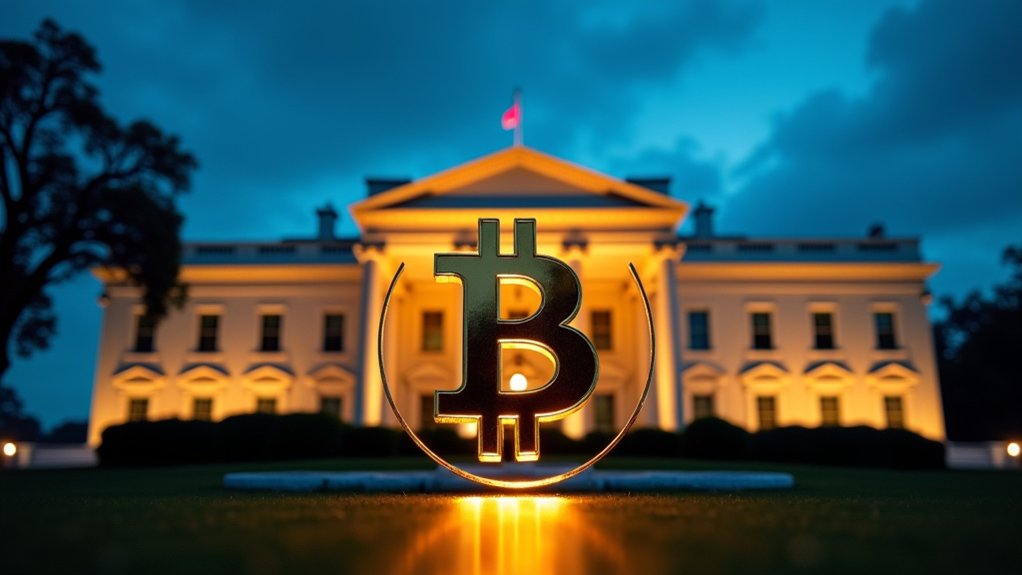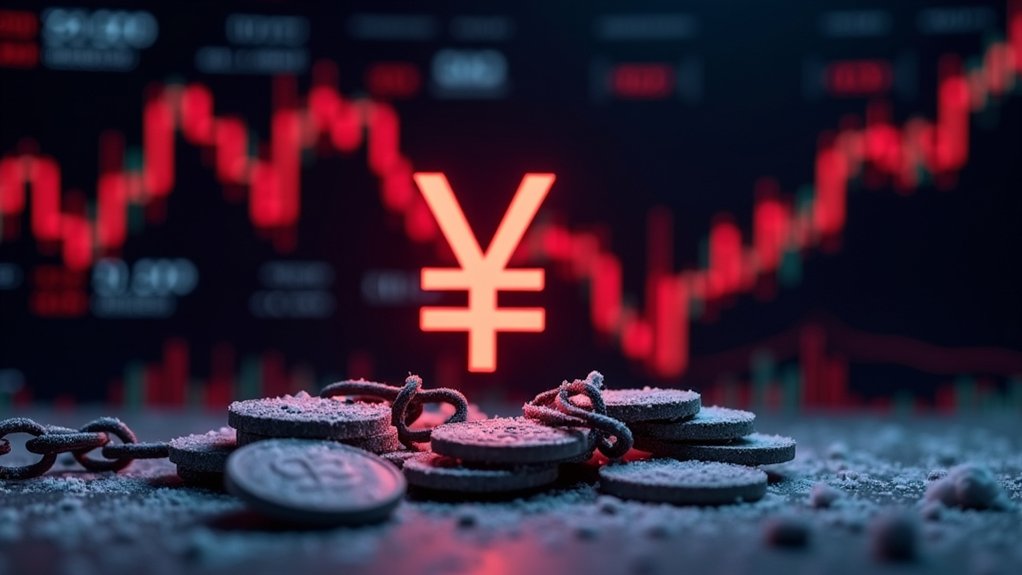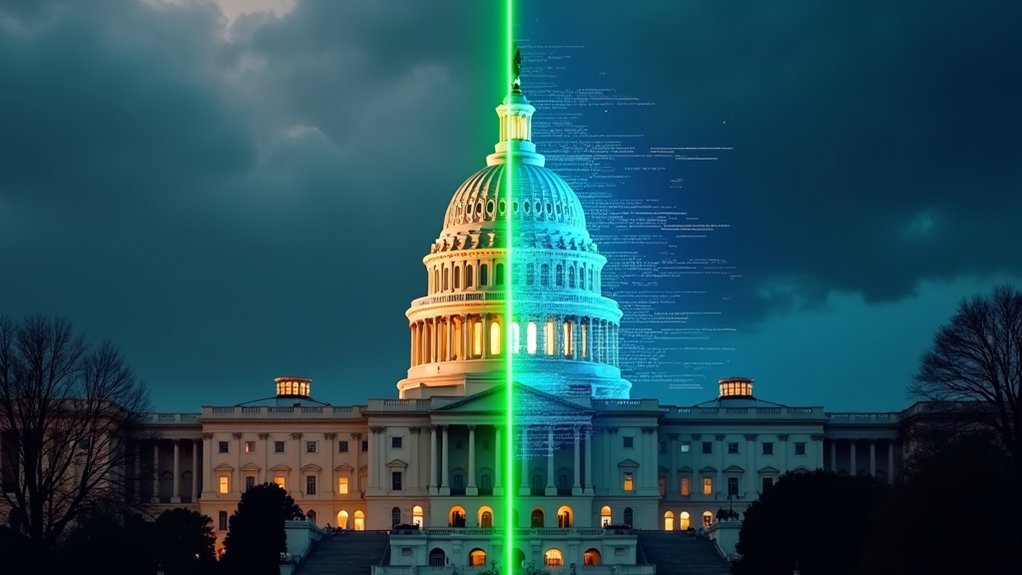Multiple federal agencies are plotting an audacious Bitcoin-buying spree – and they’re not planning to spend a dime of taxpayer money. Instead, the government is eyeing two unconventional funding sources: those pesky Trump-era tariffs and a clever accounting trick involving dusty old gold certificates.
Uncle Sam’s latest scheme: nabbing Bitcoin with trade war cash and creative gold certificate accounting instead of taxpayer dollars.
The whole scheme hinges on revaluing Treasury gold certificates from their ancient price of $43 per ounce to today’s market rate of about $3,200. Talk about finding money in the couch cushions. This paper surplus, combined with existing tariff revenue, could fund a massive Bitcoin acquisition program without touching the federal budget. A comprehensive digital asset strategy will be unveiled this summer to support these initiatives.
Senator Cynthia Lummis is leading the charge with her Bitcoin Act of 2025, which would give the green light to this financial gymnastics routine. The administration isn’t exactly being subtle about their motivations – they want America to have the biggest Bitcoin stack on the global playground. Period. The market capitalization of Bitcoin makes it an attractive target for large-scale government investment.
An interagency working group is burning the midnight oil, coordinating between Commerce, Treasury, and a parade of presidential advisers. Executive Director Bo Hines is exploring all options for creative funding methods. They’re also eyeing Bitcoin seized from criminals as starter funds. Because nothing says “legitimate investment” quite like repurposed drug dealer crypto.
The market implications are huge. When Uncle Sam goes shopping for Bitcoin, prices tend to notice. The government’s planning to HODL long-term too – this isn’t some quick flip for Treasury traders. They’re betting Bitcoin will play a major role in the future of global finance, and they want America front and center.
But it’s not all sunshine and rainbow charts. Congress needs to sign off, bureaucrats need to agree (good luck), and someone has to explain to the public why we’re using tariff money to buy magic internet money.
Plus, Bitcoin’s famous volatility could give government accountants permanent headaches.
Still, the administration seems dead serious about this digital sovereignty play. They’re watching other nations build their Bitcoin reserves and thinking: America can’t afford to sit this one out. The race for digital assets is on, and the White House wants pole position.





